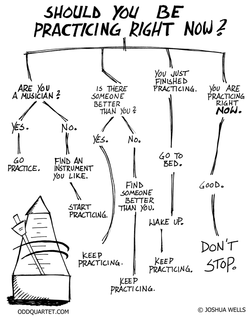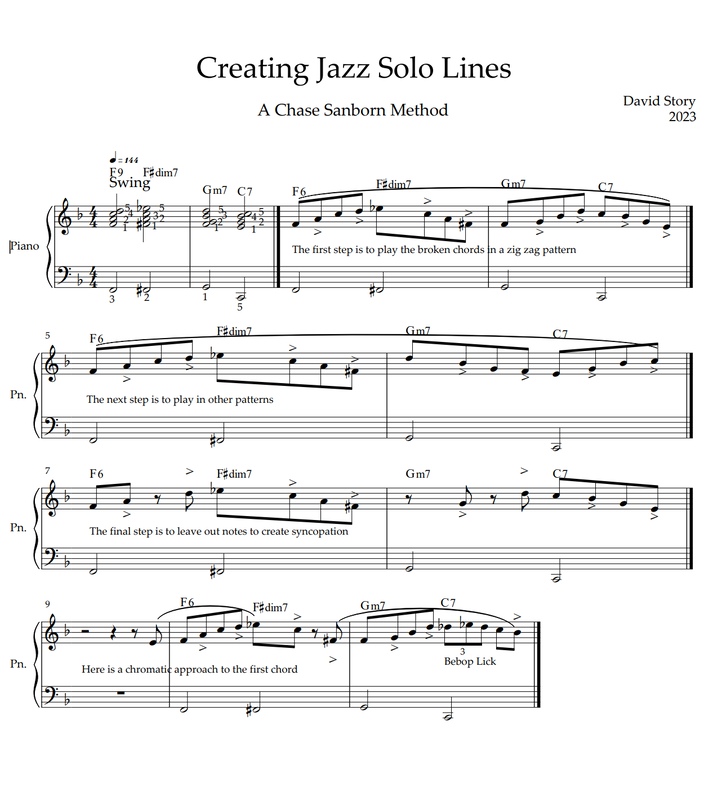 There are many ways to think about our musical development. I've produced the following: Level one, student: At level one the student learns to control their hands. i.e. the hands do what they are told. I'm told this takes about 10,000 hours. I believe it. This level is about technique, repertoire, ear training, theory studies, concert going, and practice, practice, practice. It is about following the teachers' directions, and maintaining and nourishing your personal curiosity, patience, and faith in the process. Level two, professional: At level two you have professional hands that do what they are told. At this level you practice maintaining and refining your skills. Level three, artist: At level three you have something interesting to say and the ability to communicate it. Artists blend this elevated level of creativity and skill into dazzling musical displays. How do you become an artist? I don't know. However, I do know you must go through the first two steps to reach level three. Too many folks try to skip all or part of the first two steps in their haste to be "artists." This is misguided, naïve, and foolish. Conclusion? Get off the internet and go back to the practice room! Cheers, David Story January 2023 update
0 Comments
 Gary Burton, jazz musician extraordinaire and master teacher, is giving a free course online through Coursera. I've taken it. Gary's first point: Improvisation is a language with a vocabulary of sound. This consists of chords, scales, and licks. It requires an ability to hear these internally and then assemble them in real time. And finally, there is your ability to develop a story, with sound, on the fly. Gary's second point: Sounding like a jazz musician through memorizing licks is like memorizing French phrases and heading to Paris. You may sound French; however, things quickly break down when you are spoken to. David Story 2023 update. It was an interesting course; however, it requires a high degree of keyboard skill to get the most from it. Below are some exercises for beginners who have intermediate skills which involve broken chords, a bebop lick, and a chromatic approach. It was inspired by a Chase Sanborn story, who discovered his jazz solos improved when he left notes out. Creating Jazz Solo Lines A tale of two adult students Part one:
Part two:
Cheers, David Story |
You've got to learn your instrument. Then, you practice, practice, practice. And then, when you finally get up there on the bandstand, forget all that and just wail. AuthorI'm a professional pianist and music educator in West Toronto Ontario. I'm also a devoted percussionist and drum teacher. Categories
All
|

 RSS Feed
RSS Feed